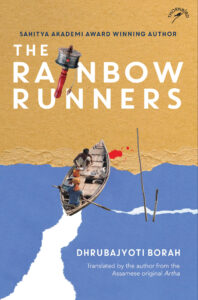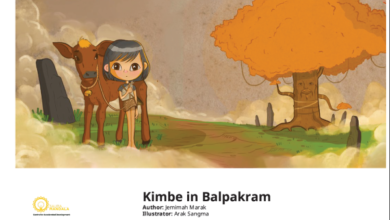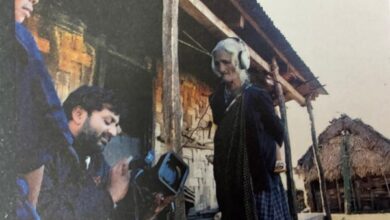BOOK REVIEW: A dark history & ‘the river of time’
Dhrubajyoti Borah's translated novel begins with a nightmare & ends in a dream

 Assam has witnessed significant development in the last decade. The mushrooming high-rises, crisscrossing flyovers, the razzmatazz of shopping malls, and a growing economy have overshadowed the chaos and uncertainty that marked the days of insurgency in the state in the eighties and nineties. However, the new generation needs to know the dark history of insurgency because its awareness of the past will help pave the right way towards a promising future.
Assam has witnessed significant development in the last decade. The mushrooming high-rises, crisscrossing flyovers, the razzmatazz of shopping malls, and a growing economy have overshadowed the chaos and uncertainty that marked the days of insurgency in the state in the eighties and nineties. However, the new generation needs to know the dark history of insurgency because its awareness of the past will help pave the right way towards a promising future.
Dhrubajyoti Borah’s The Rainbow Runners rewinds to the days of trepidation, despair and a contemporaneous history of loss.
Sriman’s story begins on the banks of the Brahmaputra where he witnesses a crime that keeps haunting him. Unable to share his experience, Sriman lives in fear. He continues to see a phantasmagoria of shadowy figures that draws him to the crime place.
At a time when Sriman is living in agony, he meets an old friend who helps him get a job in journalism. But instead of finding a way out of the mental distress, Sriman finds himself sucked into the darkness. Meanwhile, he comes in contact with an influential reformed insurgent. Sriman finds a way to overcome the hallucinations but only for a while.
The insurgency in the state is at its peak and it gradually takes a toll on Sriman’s life. He witnesses another crime that pulls him down to the nadir of despair.
“The shattered and scattered moonlight, the light and shadows like the spotted coat of a leopard, again returned through the lattice of the bare branches of the trees and reclaimed the forest… And in that moonlight, patterned like a fishnet, Sriman looked like he was sleeping with his arm extended forward.”
The novel has two parts, one narrated in the third person and the other in the first. The second chapter of Sriman’s life begins in the Himalayas. From a journalist and real estate broker to a travel guide, the youth from Assam could finally escape the labyrinthine existence in his home state.
In The Rainbow Runners—a translation from the Assamese original Artha, which is part of the author’s trilogy on the insurgency problem in Assam—the subtlety in describing the troubled times in the northeastern state creates a sense of unease and eeriness. The fear that gnaws into Sriman’s mind spills over to readers and starts spreading its tentacles until suddenly Borah switches the time and place and the mode of narration.
The first-person narration in the second part of the novel is more intimate. The protagonist is more confident here. He is like a Phoenix who has risen from the ashes to find a deeper meaning in life.
The Himalayas have not only helped Sriman recover from the past but also opened up other aspects of the philosophy of life and living. In Assam, Sriman is known among friends as a writer and poet who would voice concerns about government apathy and socio-economic issues. The poet in him finds a new way of living in the mountains and learns the ways of Buddhism. He finds love but for a fleeting moment. In the end, Sriman’s life drifts back to the Brahmaputra.
Borah’s Elegy for The East (Kalantarer Gadyo), which was also published by Niyogi Books, has direct reference to the insurgency. However, in this latest translation, the author creates a sense of uncertainty. He also shows the duality of the time when personal gains overpower professional ethics and self-esteem. Hence, the low lives among journalists and police officers come as a surprise to Sriman.
The novel begins with a nightmare and ends in a dream, and in between flows ‘the river of time’ that keeps alive the dark history that needs to be told.
Book: The Rainbow Runners; Author: Dhrubajyoti Borah; Publisher: Niyogi Books; Pages: 422; Price: Rs 695
~ Team Sunday Monitor
Read other reviews:





